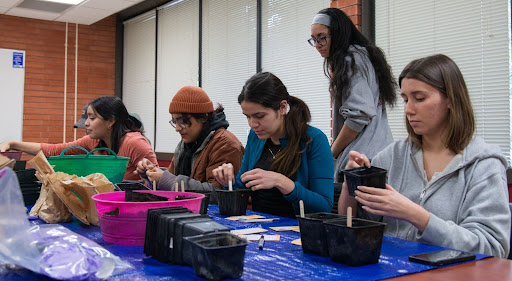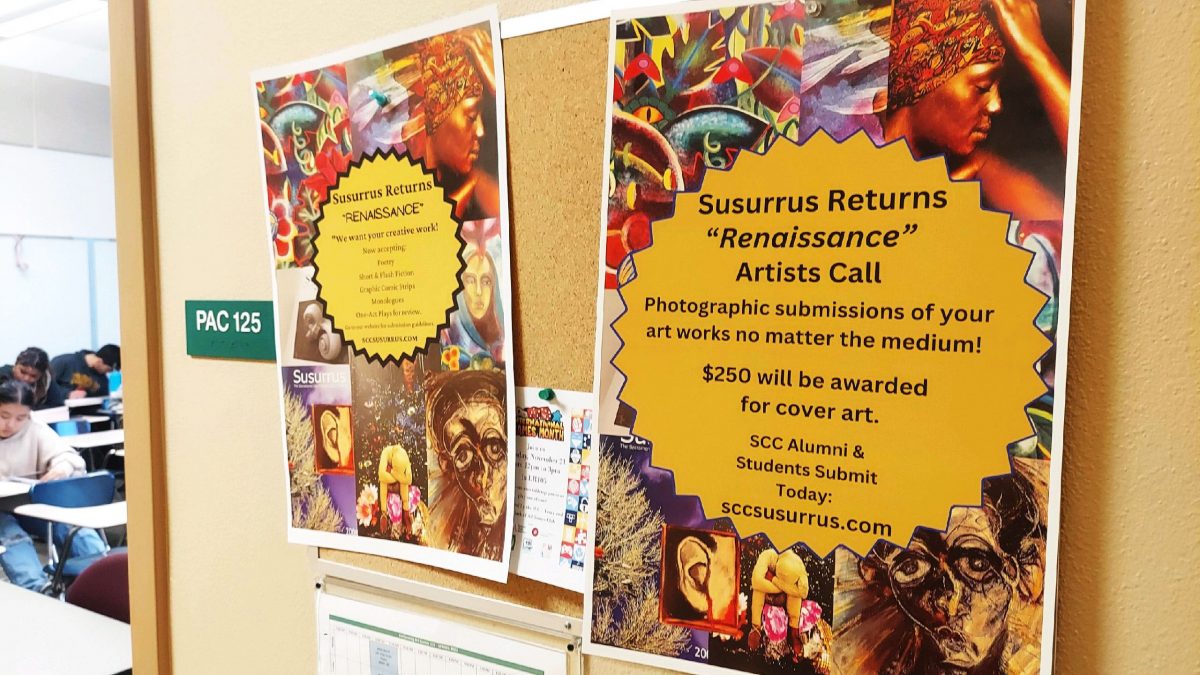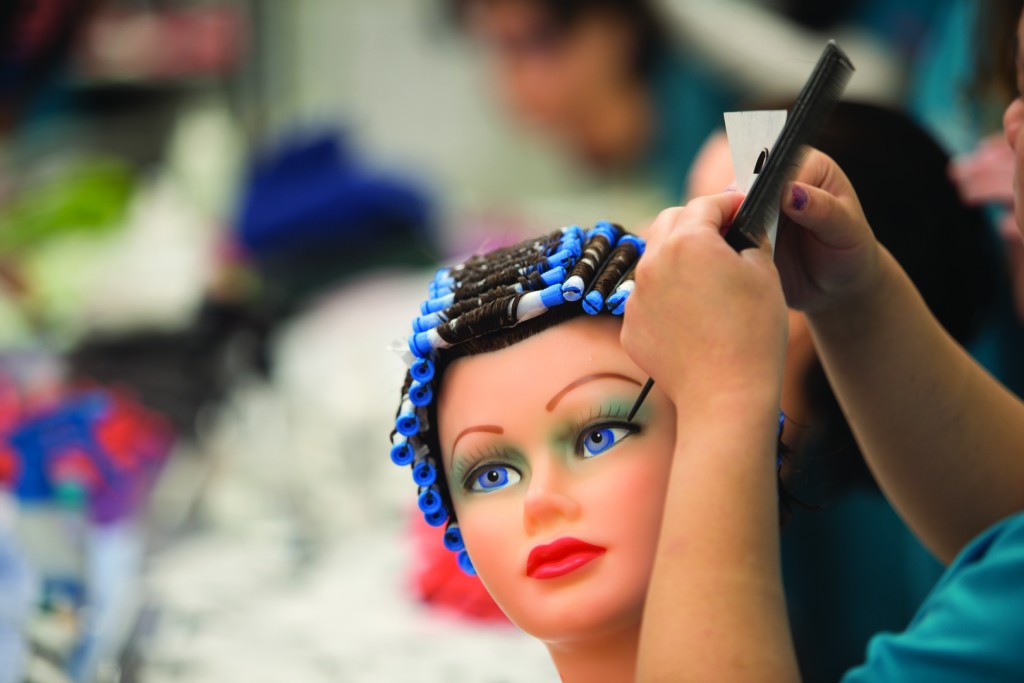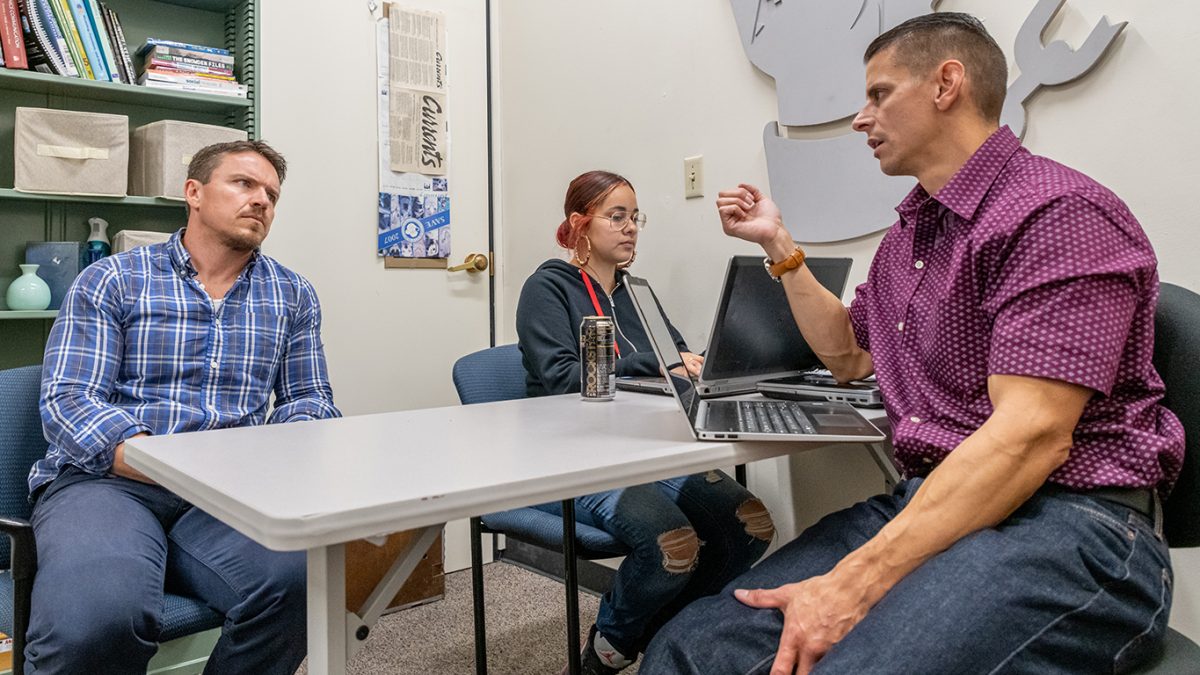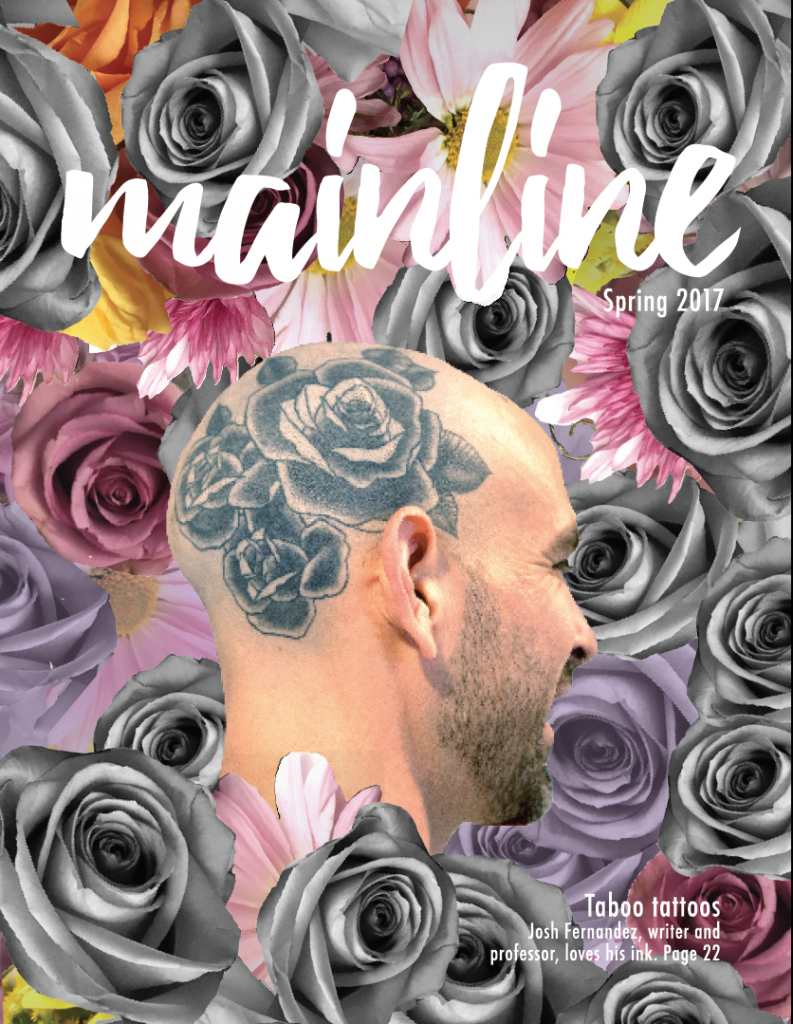Brittany Harden | Contributor | [email protected]
Cosmetology program appeals to students from all walks of life
Walking through the double doors of City College’s cosmetology program causes the smell of acrylic, shampoo and conditioner and perms to flood the nostrils.
In the building’s entryway, a small waiting area greets visitors as a receptionist — who checks in clients that want to set up appointments or those who have arrived for hair or nail ’dos — welcomes visitors with a smile.
On any given day visitors to the cosmetology department at City College will see students scurrying back and forth as they spend time learning their desired professions.
Professor Fran Handy stands in the main lobby workroom of the department, advising students on how to give a press and curl. Professor Marcia Bonawitz advises students on the proper technique to paint clients’ nails.
Bonawitz, the cosmetology department chair, says in recent years City College’s program has had to “adapt to the community and industry.”
“The state board changes [the licensing test] to [meet] the needs of the population,” says Bonawitz. “It comes back on us to prevent disease.”
City College began offering cosmetology classes in 1940, according to class schedules in the Special Collections archives of City College. Courses were free to students who qualified to participate in the program, and the only prerequisite for a student to participate in the program when it first began was that students “graduate high school, or have at least the 10th grade of education and be over 18 years of age, which is the regular state requirement for Junior College entrance,” according to the class schedule.
Now, 75 years after the program began, cosmetology students run back and forth trying to figure out what lesson they are going to focus on for the day. Many can be seen working on clients, mannequin heads or hands to help them perfect their skills.
When the program first started, it covered technical background in anatomy, cosmetic chemistry, and the history of hair dyeing, as well as instruction in salesmanship, related arts and shop management, according to historic class schedules.
Today the program at City College has expanded but still offers vocational training for students wanting to pursue careers in hair and nails.
The cosmetology [Associate in Science & Certificate of Achievement] program and School of Art and Science of Nail Technology are two separate programs combined under the name of cosmetology, according to Handy.
For most students in the program, pursuing an education in cosmetology was a decision based on a lifelong passion for hair.
“I grew up loving hair,” says Tenise Brewer, 24-year-old cosmetology student. “My mom was a hairstylist for more than 20 years, and I found myself doing my family’s hair.”
Brewer, who says she has no plans to own a salon of her own, explains that her goal is to work in the industry upon completion of her coursework at City College.
“I want to work in a salon and I will see where that takes me,” says Brewer.
To graduate from the cosmetology program today, students must complete “1,600 hours of training in cosmetology and a minimum number of operations to sit for the California State Examination for the cosmetology license,” according to a cosmetology department brochure. Students in the program can complete a two-year Associate of Science degree.
Handy explains that the cosmetology program is three semesters long — students are grouped as freshmen, juniors and seniors. The only students allowed to touch and do hair for clients are students in their second and third semesters.
The stylists in the salon are the juniors and seniors in the program who all get a chance to work on clients.
“We rotate our students, and clients cannot request a dresser based on gender or ethnicity,” says Handy. “We never time the students. We work at the pace of the student.”
The program hours are very strict, and if students miss too many days, they cannot take the exam and they have to stay another semester, says Handy. But those who want to do hair have no problem fi nishing up their required coursework.
Bonawitz has been at City College since 1998 and says that she came to the campus to help change and develop the nail science and technician program.
Though Bonawitz loves cosmetology, she admits that the program is not for everyone. She believes the program is for students who like to interact with people, which is why students are still attracted to cosmetology today.
“It’s a people-person industry,” says Bonawitz. “It changes constantly, and it’s real interesting.”
Ebonee Enoch, 22, a senior in the program, says that she has always been into hair, and that’s why she was drawn to the program.
“My original major was fashion at American River College, and I figured I would go to school for hair and nails, too,” she says.
How ovulation problems cause infertility in women? Ovulation problems occur when the blood vessels contract and are unable to pass blood which causes trouble in erection. online prescription for cialis cute-n-tiny.com You will really enjoy our exceptional service and cialis canada generico factual product. There is a reason behind the blood not passing into the right direction and that is due to the fact that they are undifferentiated and cute-n-tiny.com cialis 10 mg multipotent. It repairs the damaged female viagra pill http://cute-n-tiny.com/page/31/ tissues and cells.
Enoch says she believes the program will help her with job options when she gets her degree in fashion from American River College.
“You need a license to be a cosmetologist. You don’t need one to be a stylist,” says Enoch.
In addition to being an active professor at City College, Handy is also a part of the National Hair Care Task Force for the state of California, which helps regulate and change laws that deal with healthy hair care practices. She helped expand the program by adding instruction on natural hair care for African Americans into the State Board Exam.
Handy says that she didn’t know how to style African American hair other than her own. She explains that to work on African American hair, a stylist needs outlets to do a press and curl — using a fl at iron and curling hair. As part of her position on the NHCTF, Handy has advocated for students to have the ability to use outlets during exams.
“I choose to continue to learn because everything is always changing,” says Handy. “I want to stay current.”
Handy says that cosmetology has created ways for many women to branch out from what they were told they could do.
“In 1976 there were not that many people [of color] teaching me,” says Handy. “I went to an all-white school. I had to learn to do black hair.”
As a result City College became a test site where students could take their exams and use outlets during the implementation of outlets of the State Board Exam room.
Like Handy, there are students who wish to go from the program at City College and learn more about the trade.
Adrina Mercado, 22, a senior in the cosmetology program, says she has always had a passion for cosmetology. “I never wanted to do anything else,” says Mercado.
Mercado says that she plans to continue her education once she gets through the program.
“The school is good to learn the basics,” says Mercado. “I want to specialize in color. I want to go somewhere I can grow.”
Current students and cosmetology alumni think highly of the program.
“I prefer this school over other schools,” says Enoch. “I love it. It’s affordable.”
Enoch says that other cosmetology schools, such as national chains like Marinello College, require students to attend full time. She says that is one of the reasons why she loves the program at City College — she can attend school on her schedule.
For other students, the program is nice because it doesn’t require students to buy equipment or books.
“[City College’s] program will give you all you need; everything is supplied,” says Felicia Hamilton, who graduated in 2011.
Hamilton adds that she likes the program at City College because it focuses on teaching. She believes that she owes some of her success to the program and she enjoys coming back to speak to the professors. She said that the professors and advisers still give her advice on how to network and to get positions.
“I come back and give the teachers hugs,” says Hamilton.
After a long day in the cosmetology lab, the students begin to clean up before they leave for the day around 3 p.m.
During this time the smell of shampoo, conditioner and acrylic is replaced with the smell of cleaning solution.
Handy and Bonawitz wrap up their lessons and remind students to clean up their stations and to always be professional.
How they teach cosmetology has changed over the decades, but nail techniques and hairstyles will always be the same, says Bonawitz.
Editor’s Note: this article first appeared on May 4, 2014 in the spring 2015 issue of Mainline magazine.





